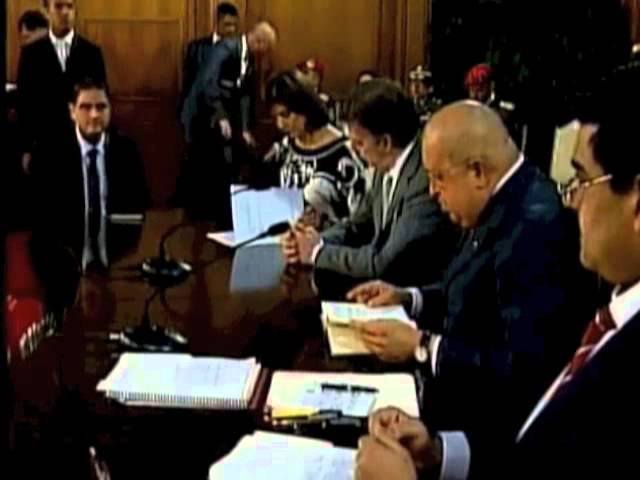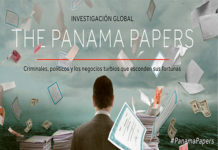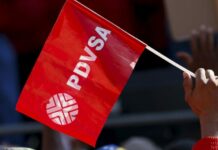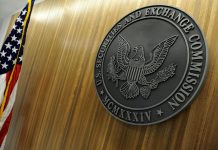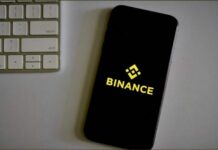CuentasClarasDigital
“Cadivism is a kind of nymphomania for obtaining cheap dollars, that is, dollars at the preferential rate that Cadivi supplies to import essential goods needed in Venezuela. Accessing cheap dollars and then reselling them for over ten times the price they were acquired has become a common practice in Venezuela, violating exchange regulations”.
Víctor Álvarez R. (Últimas Noticias – October 13, 2013).
The 2013 Attorney General Annual Report highlights the discovery of containers owned by companies that have benefited from preferential currency and that overcharged for the imported goods, as the investigation determined. Likewise, 40 people were charged and four convicted for irregularities in the way they obtained and commercialized foreign currency. But they are not the only ones—”many people” associated with this type of offence, including public officials holding management positions in the import sector, were also charged. The latter include officials from the Recepción de Solicitudes y Registro (RUSAD) and Verificación Aduanal departments in the now extinct Comisión de Administración de Divisas (Foreing Currency Administration Commission, CADIVI).
The Venezuelan Attorney General revealed that 942 individuals allegedly involved in the illegal acquisition of foreign currency and other 416 people related to organized crime groups through shell companies are currently under investigation.
The problem goes beyond the port customs or those Venezuelans who do not travel where they said they would in order to negotiate the dollars obtained through Cadivi, or even the so-called “raspacupos” (going abroad for a few days to get foreign currency in cash for fake purchases with Venezuelan credit cards). The problem lies within Cadivi itself, where many of these ilegal actions are “cooked”, including many shell companies that receive dollars illegally and whose owner´s names remain a secret. Venezuelans are still waiting for the list of those “shell companies” promised by Venezuelan president Nicolás Maduro.
The secrecy behind the shell companies
It’s worth remembering Edmée Betancourt’s statement during his short stay in the presidency of the Central Bank of Venezuela: “The amount of foreign currency that was given last year (2012) was huge, but a substantial amount of dollars was assigned to shell companies as well”.
According to Betancourt, about $20 billion corresponded to a kind of “artificial demand” not associated with real production activities. Off the record, it was known that Betancourt’s brief stay in the BCV was due to discrepancies with the National Government, in particular because she revealed that in 2012 Cadivi granted $20 billion to shell companies. So who are the representatives of the fake companies that were benefited with all that money?
In the two cases mentioned by the prosecutor, the existence of shell companies was detected. In the first one, 85 shell companies were formed to get dollars. In this first case, former Cadivi official Graterol William Rojas (53) and his son William Joseph Rojas Godoy (23) admitted their responsibility in the creation of “shell companies” to fraudulently obtain foreign currency between 2010 and 2013. But although they were found guilty, they were not sent to prison: because the sentence did not exceed five years, the court granted them a benefit as stipulated in Article 493 of the Criminal Code.
The second case involved the creation of 154 shell companies. For this felony, the prosecutor accused former Cadivi Import and Export Monitoring Manager, Francisco Navas Lugo (40), and his nephew Daniel José Lugo (30).
These are but two irregular situations. But what about the 942 criminal investigations and 416 cases associated with organized crime groups? Cases involving shell companies have been sent to the Attorney General’s Office —more specifically to the Anti-Corruption bureau and the Money Laundering, Economic and Financial Crimes bureau— because the modus operandi fits into the category of organized crime. “The Anti-Corruption bureau has 191 investigations grouping several companies; there are so many because one investigation can contain 10, 20 or 50 shell companies,” said the Attorney General.
It is not an exaggeration to say that this is a huge tangle of violations of the exchange law. Venezuelans expect that the Attorney General publishes a detailed report with the results of these investigations and that the government will not get lost in statistical tables or grandiose speeches. We expect that this case will teach a lesson and lead to significant changes in the design of exchange and economic policies in Venezuela.
In a interview conducted by José Vicente Rangel in his weekly TV show, president Nicolás Maduro announced the creation of a Special Presidential Commission that would investigate and identify all those responsible for the theft of foreign currencies through shell companies. “I am going to unveil the truth of what happened there because it was vulgar. No doubt there are public officials involved—this is a fraud against the republic…”.
During his tenure as president of Cadivi, José Khan acknowledged that about 500 companies committed irregularities in the use of the official exchange. “We have visited four states and found irregularities in 400 to 500 companies. We have already gathered all the information needed to solve this situation,” Khan said.
So when will the report with the result of those investigations be published?
Laundering money and assets through the Sucre
Another case was detected and investigated in Ecuador. This one involves fake exports and overpricing of goods and services through the Unitary System of Regional Compensation (SUCRE), name of the common virtual currency that, in November 2008, the presidents and government representatives from the ALBA (Alianza Bolivariana para las Américas) agreed to adopt.
In 2012, Cadivi announced a strategy to increase the use of the Sucre as a mechanism to import and to reduce the settlement of foreign currency for purchases overseas. To import using Sucre, Venezuelan companies pay in bolivars (the Venezuelan national currency) through the bank of their choice, which in turn transfers those bolivars to the Banco Central de Venezuela (Central Bank of Venezuela, BCV). Next, the BCV converts the local currency to sucres and then transfers that money to the Central Bank of the country where the exporters are located.
In July 2013, the Ecuadorian media reported about fictitious exports from Ecuador to Venezuela, most of them taking advantage of the benefits offered by the sucre system. “Companies used the sucre to obtain dollars from Venezuela—Ecuador was the bridge, and the money was later sent to tax havens,” explained the Attorney General of Ecuador, Galo Chiriboga. It was detected, according to Chiriboga, “an outrageous imbalance between goods exported by shell companies and the money received by the sucre system from Venezuela”.
The Attorney General of Ecuador also mentioned an investigation carried out for several months to three companies. These companies were blocked, in favour of the Ecuadorian state, $57 million in cash and $2 million in assets and real state. “The three companies managed to receive large sums of money and then divert it to tax havens,” said the Office of the Attorney General in a statement.
According to the Servicio de Rentas Internas (Internal Revenue Service, SRI) and the Superintendency of Companies the three companies mentioned above are “fronts” that simulated to carry out corporate, commercial and financial operations.
Between December 2012 and March 2013, one of these companies alone received transfers for $159.8 million dollars through the sucre. And according to the prosecutor José Luis Jaramillo, this company cloned invoices to justify illicit transactions.
Another of the companies investigated exported to Venezuela calcium carbonate for more than 1.000% of its real value—this product, which is sold in Ecuador for 0.12 cents per kilo, was sold to Venezuela for $997 per kilo.
Global Construction Fund
On November 24, 2013, after nearly one year of investigations, the Attorney General of Ecuador announced that case of the companies operating under the Unitary System of Regional Compensation (SUCRE) and performing fictitious or overvalued exports would be submitted to the Venezuelan authorities. Jaramillo justified the measure based on the “existence of illegal foreign trade involving a misuse of both Venezuelan and Ecuadorian public funds”.
Two days earlier, on November 22, 2013, the prosecutor Jaramillo filed charges for money laundering against three people linked to the company Global Construction Fund, established in Ecuador in September 2012. This company received $159.9 million between December 2012 and March 2013 through the Sucre.
For this case, Judge Alex Silva ordered preventive detention against two of the three defendants: Luis Eduardo Yánez Sánchez (Venezuelan) and Enrique Pulido Vargas (Colombian). Both, according to the prosecutor, are listed as shareholders of Global Fund Construction (Fodocons S.A.), established in Ecuador in September 2012.
According to the allegations by the prosecution, exports done through Sucre had lower prices than the amount in dollars received from Venezuela: “There were serious distortions and unusual and unjustified procedures,” the prosecutor said.
A report by the Servicio Nacional de Aduanas (National Customs Agency) of Ecuador compared what the company allegedly exported (houses and spare parts) and what they received, concluding that it could only justify $ 3.1 million of the total received in transfers.
“Since exports were not made, and over 159 million dollars were received, the origin of those assets is illegal. Front companies have been created, and corporate, economic, commercial and foreign trade operations have been simulated, that is, fictitious exports and overvaluation of goods from Ecuador to Venezuela,” stressed prosecutor José Luis Jaramillo.
Other links in the chain
In a public event held in Caracas on November 28, 2011, attended by presidents Hugo Chávez and Juan Manuel Santos, from Venezuela and Colombia respectively, eleven bilateral cooperation agreements, including a trade agreement for the granting of mutual tariff preferences, were signed. Then ministers of Foreign Affairs Nicolás Maduro, from Venezuela, and María Ángela Holguín, from Colombia, were there.
This document included a cooperation agreement between the Intermediate Industries Corporation of Venezuela (Corpivensa) and the Global Fund Construction of Colombia, aimed at the creation and installation of kits for buildings and polyethylene manufactured houses.
It is noteworthy that the Global Construction Fund was registered at the Chamber of Commerce of Bogota only four days before the signing of the agreement and that although Alex Saab signs in as his legal representative, it is Adriana Rodríguez Martínez who appears as the company’s representative in the constitutive document.
Once the investigations and the decision of the Ecuadorian court were made public, pieces of information suggesting that the Global Fund Construction (a company associated with the Sucre’s fraud in Ecuador and Colombia) was the same mentioned in the trade agreement between Colombia and Venezuela, started to appear in Colombia.
Alex Saab —who some journalistic sources relate to former Colombian Senator Piedad Córdoba— and his lawyers denied any such relationship between Global Fund Construction of Ecuador and other companies registered under the same name in Venezuela and Colombia. To support this argument, his lawyers stressed that Saab’s name does not appear in the registration documents of the company investigated in Ecuador.
The article “Ecuador Attorney company undertakes legal action against Alex Saab”, originally published on http://infodio.com/es/tags/alex-saab and later deleted (but still available via cached), draws the following conclusions about this case:
1) The two people accused by the prosecution in Ecuador (Yánez and Pulido Sánchez Vargas) are partners and proxies of Alex Saab.
2) The director of Global Construction Fund in Venezuela (Menahem Michel Edery) is partnered with an intermediary company (Thermo Group) that has requested and received dollars to pay for imports made by Global Fund Construction in Peru and Ecuador.
According to Infodio.com, “This is irrefutable evidence that it does exist a connection between Saab and the different companies named Global Construction Fund in Venezuela, Colombia, Peru and Ecuador”.
On February 17, 2014, the Attorney General of Venezuela asserted that thanks to a cooperation agreement between Venezuela and Ecuador it was possible to know about these businesses operating to and from Venezuela, and that this case was being investigated in close collaboration with the Ecuadorian Attorney General to punish those people responsible for an action that affects Venezuelan funds. Although not explicitly stated in the press release, what is being referred to in this case is the fictitious or overpriced exports made through the sucre.
Now, if the Ecuadorian prosecutor transferred these cases to Venezuela, why haven’t we heard of any news about an investigation carried out by Venezuelan authorities to clarify a case that fits perfectly with the macro-scam perpetrated against the Venezuelan nation and that is popularly known as “cadivismo”? Who were the top Venezuelan officials that acted as accomplices in this fraud? Why haven’t the Comptroller General and the Prosecutor acted accordingly? Did Nicolás Maduro, then minister of Foreign Affairs, revise the agreement in detail before signing it?
Overpricing in the Colon Free Zone
“Traders sold overpriced products to Venezuelans to help them get dollars,” said the Minister of Economy and Finance of Panama, Frank De Lima, referring to the debt with traders and businessmen in the Colon Free Trade Zone in Panama.
The breaking of diplomatic relations with Panama, decided unilaterally by the Venezuelan president Nicolás Maduro, seems to have drawn the curtain that covered the true debt with the Colon Free Trade Zone. A few days after the diplomatic break, Venezuelan Foreign Minister Elías Jaua said he said in televised interview with José Vicente Rangel: “Ninety per cent (of the debt) is fraudulent. It’s a real rot what we found there, an embezzlement against the Bolivarian Republic of Venezuela with goods that never left Panama and are now being charged as a debt in dollars”.
In an interview published on La Estrella’s website, Leopoldo Benedetti, manager of the Colone Free Trade Zone, called Venezuelan entrepreneurs ‘thieves’. He assured that the latter, in collusion with officials of the Venezuelan government, tried to carry out a fraud.
On its website, the daily La Estrella reported on March 18, 2014:
Benedetti was referring to a debt of 1,472 million (a debt by the Venezuelan Foreign Exchange Administration Commission, CADIVI, with traders and entrepreneurs in Panama), 937 million of which were invoiced by companies that did not exist.
Presumably, the transactions were done through so-called briefcase companies (fake companies created to commit fraud).
In Venezuela, businessmen choose to remain silent and ‘off the record’ mention their fear for retaliation or being negatively impacted if they talk.
In Panama, users of the Free Trade Zone do not rule out or confirm their participation. Severo Sousa, president of the business association of the free zone, said that ‘no one has said that 100% of invoices are justified, but those that are justified must be paid”.
The 2007 Comptroller General report
The Comptroller General of Venezuela also warned about the numerous complaints about the large amounts of dollars awarded by Cadivi to briefcase companies.
“Since 2007, the Comptroller General’s Office warned Cadivi about this irregular situation and the delays related to the settlement of foreign currency. The reports are available on our website; I’m not saying anything that the general public does not have access to”, said Adelina Gonzalez, the Comptroller General.
Sha added that customs procedures were exceeding the timeframes established in the regulations and that Cadivi “should have tracked what was authorized during certain periods”.
Interview broadcasted by radio station YVKE Mundial on January 28, 2014, the Comptroller Adelina González asserted that this case showed an administrative unlawful. ”Although we cannot say that these actions are felonies, they do involve delays and losses that affect our country.”
Subsequently, in another interview with Unión Radio, González said that the fraud carried out with foreign exchange allocated by Cadivi occured because the system’s “control mechanisms failed and are constantly violated”.
Finally, the 2007 Comptroller General Annual Report lists some of the faults detected in the audit to Cadivi. Here we highlight some of them:
• Lack of internal control mechanisms for the verification of the maturities of the bonds and the updating of information in Cadivi’s automated system. This situation does not guarantee the reliability of the data processed by the system.
• During an evaluation of the automated system for the authorization and settlement of foreign currency, the Comptroller reviewed 9,783 applications for foreign exchange equivalent to 1.886 million dollars to import goods. The Comptroller found that only 250 requests, for a total of $58 million, were at the stage of “running bond” or “bond release” because at the time of the study the proper use of the funds could not be demonstrated.
• Weaknesses in Cadivi’s internal control mechanisms, as well as in the supervision and control of the operations, led to payments for Bs. 331 680 000 to suppliers that did not provide the goods or services for which they were paid.
• Cadivi’s controls for authorizing the acquisition and settlement of foreign exchange for imports, as well as for verifying the correct use of the latter, were deficient.
• Internal control mechanisms established for the procurement of goods and contracting services do not help to ensure the best price, quality of goods and services contracted, proper safeguarding of resources disbursed, or adherence to legal and sublegal provisions. They do not ensure compliance with the legislation governing the processes of authorization and settlement of foreign currency established in Cadivi’s regulations.
At the time (2007), the recommendations of the Comptroller General were the following:
• To implement manual and automatic controls to alert on approaching deadlines, monitor breaks in the application for the authorization of foreign currency, and verify the accuracy of the information provided by importers for the processing of applications to purchase foreign currency, especially regarding the declaration and payment of tax, the nationalization of the goods covered by the application, and the rest of the documentation required. When available, technology should be used at the maximum level in order to comply with the principles of speed, efficiency, effectiveness and transparency established in the Constitution of the Bolivarian Republic of Venezuela.
• To perform out the necessary technical studies to automate monitoring procedures and the control of any change in the applications, formally and duly documented.
• To perform, in the short term, the studies necessary to implement automatic controls that alert about the expiration of terms, respecting the legal framework and the mechanisms necessary to support automated process that allow to verify the correct use of foreign exchange by importers, making maximum use of the technological tools available in order to comply with the principles of effective speed, efficiency and transparency provided in the Constitution of the Bolivarian Republic of Venezuela.
It seems that the detected irregularities and recommendations of the Comptroller General were not taken seriously. Nor does the report clarify whether there were shell companies involved or not.
In the end…
On December 31, 2010, Lt. Col. Manuel Barroso, then president of Cadivi, participated in the Aló, Presidente TV show No. 350 to celebrate the seventh anniversary of Cadivi.
President Chávez: “Well… Congratulations to Cadivi in its seventh anniversary! We are confident that it will continue to fulfill its role in this system, a new system for the administration of dollars… and the national wealth at large, be it dollars, gold bars, oil, gas, iron, agriculture, banking, finance, etc. What happened before? First, dollars coming from oil sales left the country right after we received them. In whose hands? That money left in the hands of the bourgeoisie, which bought dollars at a very low price. Well, Barroso: congratulations and go on!”
Four years later, Cadivi disappears with the vices that Chávez was complaining about: cheap purchase of dollars that are sold in the black market for over 700 percent of their original price; also, a bunch of shell companies fattening the pockets of their creators but whose names are kept in absolute secrecy.
Cadivi finally disappeared on December 31, 2014. But the lack of official information and the hidden world of the investigations aimed to find the people responsible for the irregularities, the fraud and the illegal purchase of dollars… those practices are far from over. The Cadivismo is very much alive.

